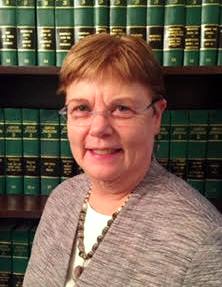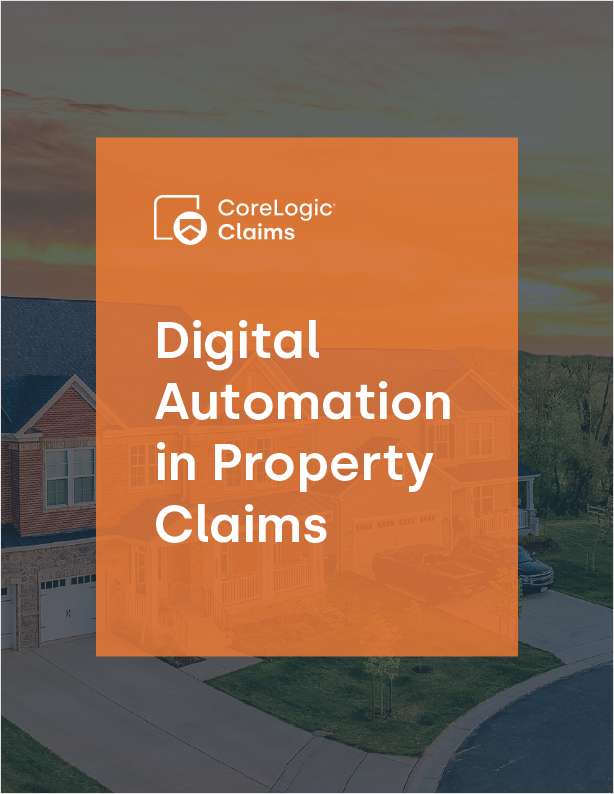Many Goodbyes Are Not Forever
When Mark Dubois pitches his phone into the Atlantic, then I will believe that he is retired.
December 13, 2018 at 11:02 AM
5 minute read
 Patricia King
Patricia King
I have spent the past few weeks fielding the same question: “Is he really going to retire?” I know Mark Dubois wrote that farewell article about how he was going to fix bikes and make soup, but truth be told, I have heard this all before.
When Mark worked with me in the Chief Disciplinary Counsel's Office, not a week went by that he wasn't threatening to leave. “Someday this will all be yours,” he would tell me. “Yeah, right,” I would think and go back to my office to delve into yet another sad tale told in a grievance file. At one point he was interested in an advertisement he had seen for a lawyer to set up a legal system in Afghanistan. It was the type of challenge that appealed to him, and he thought they played a lot of polo in Afghanistan, so that would be a bonus. Well, we all know he didn't go to Afghanistan. But when he came home from his summer vacation in Provincetown in 2010 and told me he and his wife had bought a condo there, I knew the time had come for him to leave the stifling regularity of state employment behind.
I wondered how we would go on without him. Mark had the ideal combination of skills to get the Office of the Chief Disciplinary Counsel up and running, to make something from nothing. He is an incredibly bright guy with a great liberal arts education, capable of abstract thinking, analyzing the history of the law that would lead to the rationale for deciding whether what we wanted to do was appropriate, and able to see the big picture. At the same time, he is compassionate; with his experience in private practice he could empathize with all the struggles that go with the challenge of making a living as a “ham and egg” lawyer, as were so many of our constituents in the disciplinary system.
Underlying the compassion was a strong personal moral code, no doubt fostered by the Jesuits. What was wrong was wrong, and had to be dealt with accordingly. The unpleasant parts of the job of meting out discipline had to be done, and with the least possible drama.
Then he left the Office of the Chief Disciplinary Counsel and went on to private practice and lead the Connecticut Bar Association. We went on without him, in the “house” that he built.
It is clear from the interest in Mark's alleged retirement that he is esteemed by many in the Connecticut bar, for many different reasons by many different people. He represents the lawyer we can all identify with: he is not such a fancy dresser that we feel outclassed; he has his own style of sartorial splendor in the vein of a tweedy absentminded professor (if you don't see the tattoos). A genius disguised as an old hippie. He even has the ability to, on occasion, make comments with the filter “off” when it should be “on.” We can all identify with that.
He is soft-spoken and kind. When he would counsel the many troubled lawyers who called the disciplinary counsel's number in either panic or desperation, Mark would take the time to calmly talk them off the ledge, and lead them to a path forward before hanging up the phone. Pastoral counseling, we called it. He continues to do the same for his clients and his colleagues.
The bar needs lawyers like Mark, who are not full of themselves, who do not have to believe they are better than the rest of us because they are so smart. We need the combination of intellectual skills, practical advocacy, recognition that solving problems can be the equivalent of winning, and kindness to set the example for our younger brothers and sisters at the bar. This keeps us going as lawyers, to know that there is someone we can trust to call when we are in a pickle. We look forward to other attorneys who will rise to fill the void.
Mark will fully retire one day, maybe. He has a remarkable gift of survival, given any number run-ins between his bicycle and motor vehicles of one sort or another, other assorted illnesses, and, of course, the broken neck that he suffered because he was more interested in watching a turkey vulture than the road. We will hope by then that some other equally inspirational lawyer rises to the top of our profession to lead us forward. We need inspiration.
So, as for this so-called retirement, you read the article—the phone will continue to ring in his pocket. His intellectual curiosity will compel him to answer. Maybe he won't be traveling back for as many grievance hearings, but he'll be around for whatever piques his interest, which will not be put out to pasture any time soon. When he pitches his phone into the Atlantic, then I will believe that he is retired.
Patricia King is a former chief disciplinary counsel for Connecticut, now with Geraghty & Bonnano in New London. She can be reached at [email protected].
This content has been archived. It is available through our partners, LexisNexis® and Bloomberg Law.
To view this content, please continue to their sites.
Not a Lexis Subscriber?
Subscribe Now
Not a Bloomberg Law Subscriber?
Subscribe Now
NOT FOR REPRINT
© 2025 ALM Global, LLC, All Rights Reserved. Request academic re-use from www.copyright.com. All other uses, submit a request to [email protected]. For more information visit Asset & Logo Licensing.
You Might Like
View All
ADVANCE Act Offers Conn. Opportunity to Enhance Carbon-Free Energy and Improve Reliability With Advanced Nuclear Technologies

Trending Stories
- 1'Translate Across Disciplines': Paul Hastings’ New Tech Transactions Leader
- 2Milbank’s Revenue and Profits Surge Following Demand Increases Across the Board
- 3Fourth Quarter Growth in Demand and Worked Rates Coincided with Countercyclical Dip, New Report Indicates
- 4Public Notices/Calendars
- 5Monday Newspaper
Who Got The Work
J. Brugh Lower of Gibbons has entered an appearance for industrial equipment supplier Devco Corporation in a pending trademark infringement lawsuit. The suit, accusing the defendant of selling knock-off Graco products, was filed Dec. 18 in New Jersey District Court by Rivkin Radler on behalf of Graco Inc. and Graco Minnesota. The case, assigned to U.S. District Judge Zahid N. Quraishi, is 3:24-cv-11294, Graco Inc. et al v. Devco Corporation.
Who Got The Work
Rebecca Maller-Stein and Kent A. Yalowitz of Arnold & Porter Kaye Scholer have entered their appearances for Hanaco Venture Capital and its executives, Lior Prosor and David Frankel, in a pending securities lawsuit. The action, filed on Dec. 24 in New York Southern District Court by Zell, Aron & Co. on behalf of Goldeneye Advisors, accuses the defendants of negligently and fraudulently managing the plaintiff's $1 million investment. The case, assigned to U.S. District Judge Vernon S. Broderick, is 1:24-cv-09918, Goldeneye Advisors, LLC v. Hanaco Venture Capital, Ltd. et al.
Who Got The Work
Attorneys from A&O Shearman has stepped in as defense counsel for Toronto-Dominion Bank and other defendants in a pending securities class action. The suit, filed Dec. 11 in New York Southern District Court by Bleichmar Fonti & Auld, accuses the defendants of concealing the bank's 'pervasive' deficiencies in regards to its compliance with the Bank Secrecy Act and the quality of its anti-money laundering controls. The case, assigned to U.S. District Judge Arun Subramanian, is 1:24-cv-09445, Gonzalez v. The Toronto-Dominion Bank et al.
Who Got The Work
Crown Castle International, a Pennsylvania company providing shared communications infrastructure, has turned to Luke D. Wolf of Gordon Rees Scully Mansukhani to fend off a pending breach-of-contract lawsuit. The court action, filed Nov. 25 in Michigan Eastern District Court by Hooper Hathaway PC on behalf of The Town Residences LLC, accuses Crown Castle of failing to transfer approximately $30,000 in utility payments from T-Mobile in breach of a roof-top lease and assignment agreement. The case, assigned to U.S. District Judge Susan K. Declercq, is 2:24-cv-13131, The Town Residences LLC v. T-Mobile US, Inc. et al.
Who Got The Work
Wilfred P. Coronato and Daniel M. Schwartz of McCarter & English have stepped in as defense counsel to Electrolux Home Products Inc. in a pending product liability lawsuit. The court action, filed Nov. 26 in New York Eastern District Court by Poulos Lopiccolo PC and Nagel Rice LLP on behalf of David Stern, alleges that the defendant's refrigerators’ drawers and shelving repeatedly break and fall apart within months after purchase. The case, assigned to U.S. District Judge Joan M. Azrack, is 2:24-cv-08204, Stern v. Electrolux Home Products, Inc.
Featured Firms
Law Offices of Gary Martin Hays & Associates, P.C.
(470) 294-1674
Law Offices of Mark E. Salomone
(857) 444-6468
Smith & Hassler
(713) 739-1250












